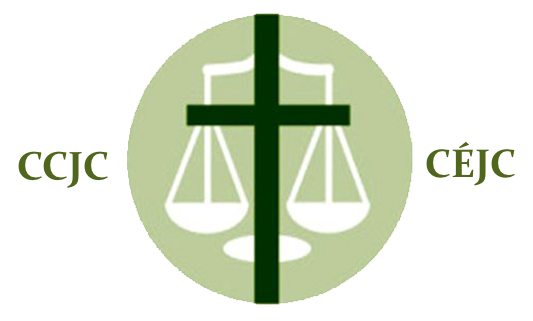Public Policy
In an effort to help our members and communities reflect upon changes taking place in Canada’s criminal justice landscape, CCJC dedicates this section of our website to reporting developments related to federal legislation. CCJC provides a faith-based perspective on the matters touched by legislation, and we seek to contribute to the dialogue from the perspective of a justice that heals and fosters growth. Where the words and work of others help to illuminate the discussion, or provide a useful background, we link to their materials.
Truth and Reconciliation: Calls to Action
Many of the denominations and members of CCJC are actively involved in a reconciliation process with First Nations due to our historical participation in the Residential School System. Our members are aware of our responsibilities, as Canadians, to support First Nation’s justice initiatives. The disproportionate number of aboriginal offenders in our system indicates a systemic problem that needs to be addressed.
The Council is currently exploring ways in which we might take part in initiatives around the Truth and Reconciliation Commission Recommendations related to justice. To begin, each month CCJC will be highlighting one of the 18 calls to action related to justice to remind us of the work that still needs to be done:
Past Work
Bill C-53
CCJC Letter to Prime Minister (version française ici)
Bill C-10
Recommendations
Effects
What a country does in youth justice often signals its overriding principles of justice and corrections. We know that in punitive times the tendency to beat up on those who beat up on others is very great, no matter their age. We can easily forget the overwhelming evidence from the field of adolescent development, that a person’s age and development need to be factored in when assessing consequences and understanding for a crime committed.
In recent years, The Church Council has addressed its core messages on youth justice in a number of forums.
Amendments to the Youth Criminal Justice Act (YCJA) in 2007
Last fall, Canada’s government introduced legislation to amend the Youth Criminal Justice Act (YCJA). The goal is to include deterrence and denunciation as sentencing principles, in other words, allowing judges to detain young offenders before trial should they be considered to pose a risk to public safety.
CCJC participated in a Consultation prior to introduction of this new legislation. Maureen Murphy, CCJC’s Past-president, represented CCJC in a meeting with Justice Canada to consult on the pre-trial detention of youth under the YCJA.
Pardons are granted upon completion of specific criteria, such as the completion of the sentence of incarceration, probation, fines, restitution and compensation orders. Since 1970, more than 400,000 Canadians have received pardons, 96% of which are still in force – meaning the recipients remain crime-free within the community.
The following links provide further information and analysis of the pardon system in Canada and the changes resulting from recent and forthcoming legislation:
CCJC Alert – A Public Consultation: Proposed Increase to the Pardon Application Fee by 400% (2 Feb 2011). The CCJC issued an Alert to our network encouraging people to participate in a public consultation regarding the proposed increase to the pardon application fee from $150 to $631.
Brief to the Standing Committee on Public Safety and National Security: Regarding further changes to legislation governing Pardons. (John Hutton, Executive Director, John Howard Society of Manitoba, 22 Nov 2010). This brief expresses concerns with proposed changes to legislation governing pardons, such as the increase in waiting times and the prohibition of pardons for certain offenses.
Testimonies from two former offenders before the Standing Committee on Public Safety and National Security (22 Nov 2010). Mr. Chris Courchene and Mr. Mumtaz Muhammed offer personal testimony about how the changes to the pardon system will undermine their goals of achieving meaningful and positive employment and reintegration.
Death Penalty and Canada’s shift in its clemency policy
Canada has been in the news recently about death penalty matters elsewhere in the world. There have been two key developments that signal our government’s shift away from its long-standing position on death penalty foreign policy matters, — and that matters! To many Canadians!
 There has been a growing chorus of criticism, nationally and internationally, over the federal government’s abrupt reversal in early November 2007 of a long-standing Canadian foreign policy to seek clemency for any Canadian citizen on death row around the world. Under a new directive, Canada will no longer fight for the lives of Canadians facing execution in “democratic countries, like the United States, where there has been a fair trial.” This begs the question, of course, about what criteria will be used to assess that state of affairs in various jurisdictions. A double standard has now been created that could undermine efforts to protect Canadians in non-democratic countries: there are currently two other Canadians facing possible execution, in China and Ethiopia, for example.
There has been a growing chorus of criticism, nationally and internationally, over the federal government’s abrupt reversal in early November 2007 of a long-standing Canadian foreign policy to seek clemency for any Canadian citizen on death row around the world. Under a new directive, Canada will no longer fight for the lives of Canadians facing execution in “democratic countries, like the United States, where there has been a fair trial.” This begs the question, of course, about what criteria will be used to assess that state of affairs in various jurisdictions. A double standard has now been created that could undermine efforts to protect Canadians in non-democratic countries: there are currently two other Canadians facing possible execution, in China and Ethiopia, for example.
Further to this first policy reversal, the federal government also announced soon thereafter that Canada would not co-sponsor the recent United Nations resolution against state executions, abandoning a decade-long leadership role on the issue.
CCJC has a long track record of work and witness in “choosing life” in our responses to crime, including our opposition to the death penalty. In addition to playing a strong leadership role in the 1987 campaign against the return of the death penalty in our own country, CCJC has spoken out against execution in specific cases, for example Stanley Faulder in Texas in 1999. Our faith message of love and transformation continues to be that we must find truly healing ways of dealing with the pain of murder – ways which seek to re-knit community and rebuild lives instead of destroying them. We believe that the ethos which informs support for executions is exactly the one that informs offenders who mete out their hostility indiscriminately; we can either follow their example or resist. CCJC continues to work to stand with all those suffering from the tragedies of murder, and, as a civilized society, to find a better way. Because violence done in the name of justice is not truly justice. Because killing people who kill people in order to teach them that killing people is wrong, makes no sense at all.
We continue to do this work in solidarity with other organizations in Canada and in other countries. Follow the links to find out about several initiatives currently underway to mobilize people to express their view on the important matters before us at this time. We encourage you to read the following message from Amnesty International (PDF) and inform yourself and others of opportunities offered to lend your voice to the chorus.
UPDATES
March 2013: Maryland state marginally defeated the legislation to end the death penalty. Governor O’Malley had mostly used moral argument and is now turning to financial argument in a bid to return to the effort to abolish the death penalty. This article takes the costs incurred since 1978 in California to practice the death penalty: http://tv.msnbc.com/2013/03/03/the-lefts-austerity-strategy-for-the-death-penalty/
